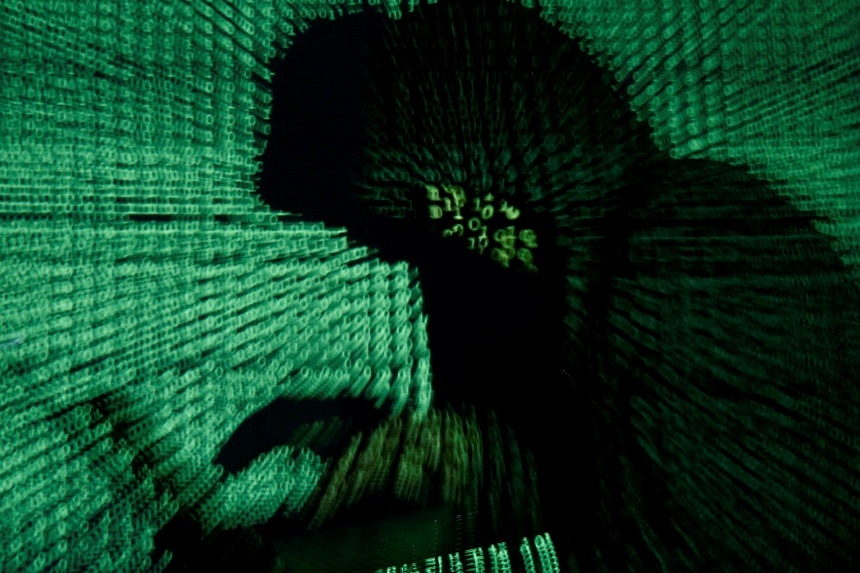
Similar Posts
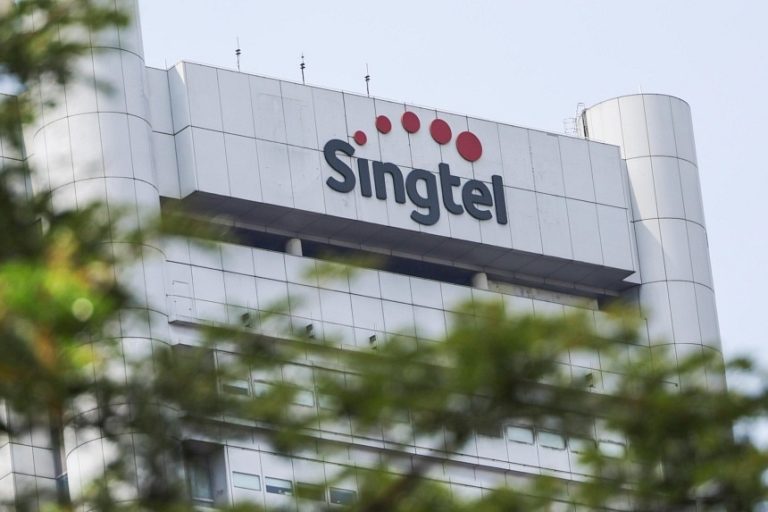
SINGAPORE – Singapore Telecommunications Ltd., Singapore’s largest mobile carrier, was breached by Chinese state-sponsored hackers this summer as part of a broader campaign against telecommunications companies and other critical infrastructure operators around the world, according to two people familiar with the matter.
The previously undisclosed breach was discovered in June, and investigators believe it was pulled off by a hacking group known as Volt Typhoon, according to the two people, who asked not to be identified to discuss a confidential investigation.
Officials in the US, Australia, Canada, the UK and New Zealand – the “Five Eyes” intelligence-sharing alliance – warned earlier in 2024 that Volt Typhoon was embedding itself inside compromised IT networks to give China the ability to conduct disruptive cyberattacks in the event of a military conflict with the West.
The breach of Singtel, a carrier with operations throughout South-east Asia and Australia, was seen as a test run by China for further hacks against US telecommunications companies, and information from the attack has provided clues about the expanding scope of suspected Chinese attacks against critical infrastructure abroad, including in the US, the people said.
In an e-mailed response to queries from Bloomberg News, Singtel did not directly address questions about the alleged breach. “We understand the importance of network resilience, especially because we are a key infrastructure service provider,” the company said. “That’s why we adopt industry best practices and work with industry-leading security partners to continuously monitor and promptly address the threats that we face on a daily basis. We also regularly review and enhance our cybersecurity capabilities and defences to protect our critical assets from evolving threats.”
A spokesperson for the Chinese Embassy in Washington, Liu Pengyu, said he was not aware of the specifics, as relayed by Bloomberg, but that in general, China firmly opposes and combats cyberattacks and cybertheft.
The US is currently battling its own suspected Chinese attacks of political campaigns and telecommunications companies. Officials have described the telecom breaches as one of the most damaging campaigns on record by suspected Chinese hackers and one that they are still seeking to fully understand and contain.
In the US telecommunications attacks, which investigators have attributed to another Chinese group called Salt Typhoon, AT&T Inc. and Verizon Communications Inc. are among those breached, and the hackers potentially accessed systems the federal government uses for court-authorised network wiretapping requests, the Wall Street Journal reported in early October.
US intelligence officials think the Chinese hacking group that Microsoft Corp. dubbed Salt Typhoon may have been inside US telecommunications companies for months and found a route into an access point for legally authorised wiretapping, according to a person familiar with their views.
AT&T declined to comment. Verizon did not respond to a request for comment.
Through those intrusions, the hackers are believed to have targeted the phones of former President Donald Trump, running mate JD Vance and Trump family members, as well as members of Vice-President Kamala Harris’ campaign staff and others, the New York Times has reported.
In the case of the alleged Singtel breach, one of the people familiar with that incident said the attack relied on a tool known as a web shell.
In August, researchers at Lumen Technologies Inc. said in a blog post they assessed with “moderate confidence” that Volt Typhoon had used such a web shell. A sample of the malware was first uploaded to VirusTotal, a popular site for security experts to research malicious code, on June 7 by an unidentified entity in Singapore, according to Lumen researchers.
The web shell allowed hackers to intercept and gather credentials to gain access to a customer’s network disguised as a bona fide user, they said.
The hackers then breached four US firms, including internet service providers, and another in India, according to Lumen researchers.
General Timothy Haugh, director of the National Security Agency, said in early October that the investigations into the latest telecommunications breaches were at an early stage. Later in October, the FBI and the Cybersecurity and Infrastructure Security Agency said they had identified specific malicious activity by actors affiliated with the Chinese government and immediately notified affected companies and “rendered technical assistance.”
A spokesperson for the National Security Council last week referred to the “ongoing investigation and mitigation efforts,” but directed further questions to the FBI and CISA.
Singtel uncovered the breach of its network after detecting suspicious data traffic in a core back-end router and finding what it believed was sophisticated, and possibly state-sponsored, malware on it, according to the other person familiar with the investigation.
The malware was in “listening” mode and didn’t appear to have been activated for espionage or any other purpose, the person said, adding that it reinforced a suspicion that the attack was either a test run of a new hacking capability or that its purpose was to create a strategic access point for future attacks.
There is evidence that Salt Typhoon reached the US at least as early as spring 2024, and possibly long before, and investigators tracking the group think it has infiltrated other telecommunications companies throughout Asia, including in Indonesia, Nepal, the Philippines, Thailand and Vietnam, according to two people familiar with those efforts.
The NSA has warned since 2022 that telecommunications infrastructure was vulnerable to Chinese hacking. Volt Typhoon has been active since at least mid-2020, having attacked sensitive networks in Guam and elsewhere in the US with a goal of burrowing into critical infrastructure and staying undetected for as long as possible.
The hacks by both Chinese Typhoon groups have alarmed Western officials and raised concerns about the number and severity of backdoors – a way to get around security tools and gain high-level access to a computer system – that China has placed inside critical IT systems. Those entry points could be used to conduct espionage or prepare the battlespace for use in a potential military conflict with the West.
Chinese hackers have long been accused of conducting espionage attacks against the US – including, most notably, the theft of security clearance applications for tens of millions of US government workers held by the Office of Personnel Management.
But officials say the latest hacks go a step further and in some cases suggest China may be amassing capabilities to disrupt or degrade critical services in the US and abroad.
Paul Nakasone, a retired general who led the NSA for nearly six years until February, told reporters in October that the latest telecommunications hacks by Salt Typhoon were distinguished by their scale, and that the two Chinese groups represent a tremendous challenge for the government. “I am not pleased in terms of where we’re at with either of the Typhoons,” he said. BLOOMBERG
The World Health Organisation (WHO) and some 50 countries issued a warning on Nov 8 at the United Nations about the rise of ransomware attacks against hospitals, with the United States specifically blaming Russia.
Ransomware is a type of digital blackmail in which hackers encrypt the data of victims – individuals, companies or institutions – and demand money as a “ransom” in order to restore it.
Such attacks on hospitals “can be issues of life and death,” according to WHO head Tedros Adhanom Ghebreyesus, who addressed the UN Security Council during a meeting on Nov 8 called by the United States.
“Surveys have shown that attacks on the healthcare sector have increased in both scale and frequency,” Dr Ghebreyesus said, emphasising the importance of international cooperation to combat them.
“Cybercrime, including ransomware, poses a serious threat to international security,” he added, calling on the Security Council to consider it as such.
A joint statement co-signed by over 50 countries – including South Korea, Ukraine, Japan, Argentina, France, Germany and the United Kingdom – offered a similar warning.
“These attacks pose direct threats to public safety and endanger human lives by delaying critical healthcare services, cause significant economic harm, and can pose a threat to international peace and security,” read the statement, shared by US Deputy National Security Advisor Anne Neuberger.
The statement also condemned nations which “knowingly” allow those responsible for ransomware attacks to operate from.
At the meeting, Ms Neuberger directly called out Moscow, saying: “Some states – most notably Russia – continue to allow ransomware actors to operate from their territory with impunity.”
France and South Korea also pointed the finger at North Korea.
Russia defended itself by claiming the Security Council was not the appropriate forum to address cybercrime.
“We believe that today’s meeting can hardly be deemed a reasonable use of the Council’s time and resources,” said Russian ambassador Vassili Nebenzia.
“If our Western colleagues wish to discuss the security of healthcare facilities,” he continued, “they should agree in the Security Council upon specific steps to stop the horrific… attacks by Israel on hospitals in the Gaza Strip.” AFP
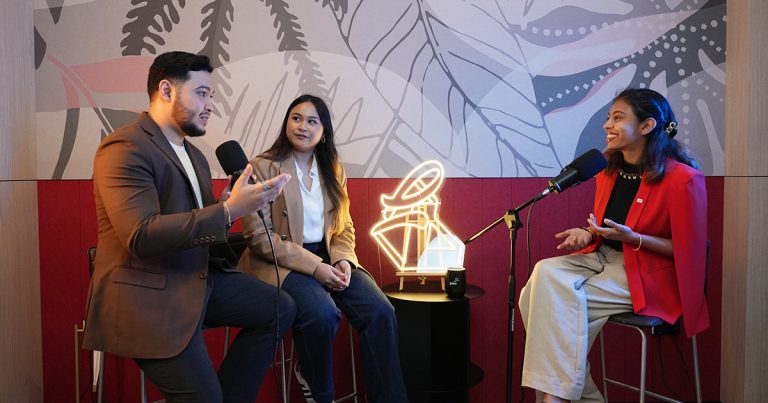
We spend so much of our lives online but have we thought about what will happen to our digital trails and assets when we die?
It is a question that came up for husband-and-wife content creators Muhammad Alif Ramli and Liyana Syahirah Ismail Johari.
 Content creators Liyana Syahirah Ismail Johari and Muhammad Alif Ramli documented their journey in seeking help to manage digital assets.
Content creators Liyana Syahirah Ismail Johari and Muhammad Alif Ramli documented their journey in seeking help to manage digital assets.
They realise, for example, if no clear instructions are left behind, not knowing the passwords or about dormant accounts on long-forgotten platforms can pose problems.
It is especially important, given Mr Alif’s medical history.
When Mr Alif was 10, he was diagnosed with rhabdomyosarcoma, a soft tissue cancer. He underwent multiple chemotherapy cycles and nine surgical operations, which the 28-year-old described as a “close-to-death experience”, before he recovered.
In the fourth episode of The Straits Times’ docuseries Let’s Talk About Death, Mr Alif and Ms Liyana, 27, seek help from experts to consolidate their digital assets.
They speak to a cyber security expert to find out how to best manage their passwords. They also talk to a lawyer who specialises in digital assets to look into protecting their social media accounts, which may generate revenue in the future.
Finally, Mr Alif and Ms Liyana also attempt to write their wills with the help of artificial intelligence tools, with the key question being: Will they be valid under syariah law?
Let’s Talk About Death is a five-episode docuseries that follows several millennials and their loved ones as they navigate end-of-life planning, and it starts honest conversations about death and dying well.
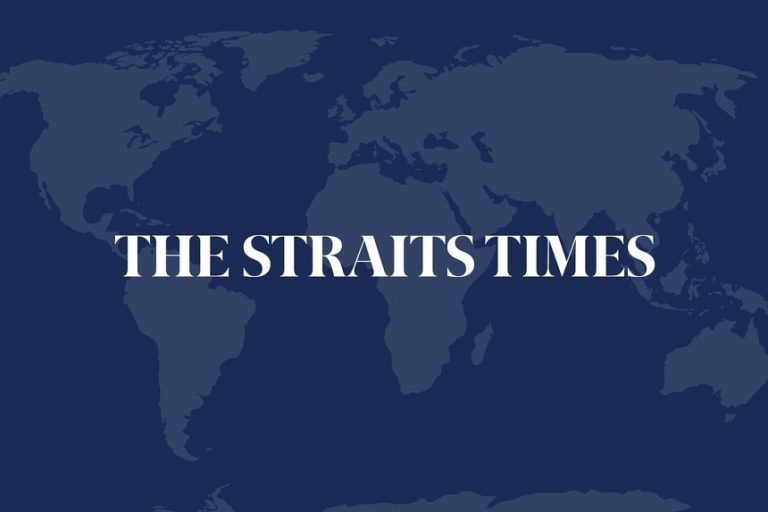
HELSINKI – A fibre optic communications cable linking Finland and Germany along the seabed has stopped working and may have been severed by an outside force, Finnish state-controlled cyber security and telecoms network company Cinia said on Monday.
The 1,200 km (745 miles) C-Lion1 cable running through the Baltic Sea from Finland’s capital Helsinki to the German port of Rostock malfunctioned just after 0200 GMT, the company said.
The sudden outage implied that the cable was completely severed by an outside force, although a physical inspection has not yet been conducted, Cinia’s Chief Executive Ari-Jussi Knaapila told a press conference.
The damage occurred near the southern tip of Sweden’s Oland island and could typically take between five and 15 days to repair, he added.
Cinia said it was working with authorities to investigate the incident.
Last year a subsea gas pipeline and several telecoms cables running along the bottom of the Baltic Sea were severely damaged in an incident raising alarm bells in the region.
Finnish police investigating the 2023 case have named a Chinese container ship believed to have dragged its anchor as a prime suspect, but have not said whether the damage was believed to be accidental or done with intention.
In 2022 the Nord Stream gas pipelines linking Russia to Germany in the Baltic Sea were destroyed by explosions in a case that remains under investigation by German authorities. REUTERS
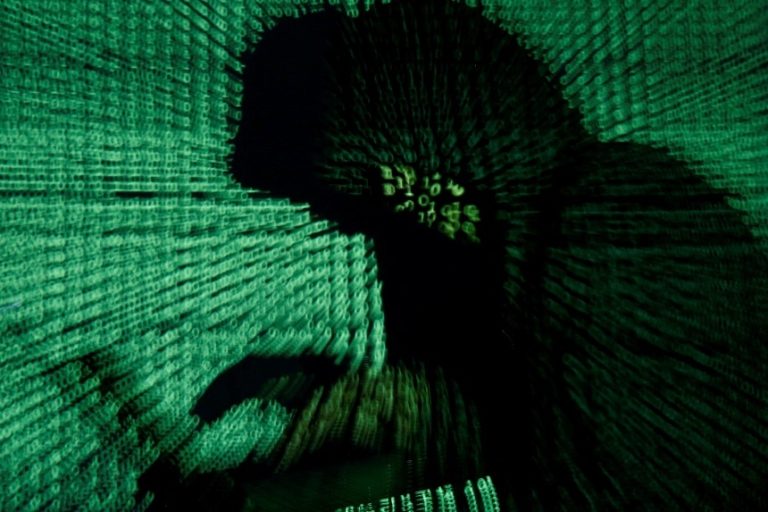
SINGAPORE– The Cyber Security Agency (CSA) is starting a study aimed at raising the productivity and professionalism of cyber-security workers.
It may result in an outline of the competencies required of chief information security officers – known by the acronym Cisos – and their teams of security executives who are in high demand, given their key role amid surging cyber attacks.
Ms Veronica Tan, CSA’s director at safer cyberspace division, told The Straits Times: “For organisations, clarity in standards and desired skills at various roles will mean greater improvements in workforce competency and productivity.”
The study will involve industry players, training institutions and certification bodies, she added.
CSA’s plan comes as companies warm to the idea of designated cyber-security personnel, but sometimes find themselves hindered by limited budgets and a shortage of skilled talent.
Mr Nyan Yun Zaw, the first Ciso at Singapore cyber security advisory firm Athena Dynamics, said: “The industry turnover rate for Cisos is unfortunately pretty high because it is a highly challenging and stressful job.
“When the organisation faces a security incident, this is the first person everyone looks to.”
Chief information security officer, a title that arose up in the 1990s after Citibank appointed one following a cyber attack, have risen in prominence in recent years as some countries made mandatory disclosures of material cyber breaches or attacks.
There have also been high-profile cases of criminal charges taken against such officers, such as at Uber and SolarWinds.
Mr Zaw took on the job at Athena Dynamics just over a year ago when his company expanded it beyond IT infrastructure and support.
His background was a string of roles ranging from engineering, cyber security, programming, to business development and sales in the firm since its set-up in 2014.
He added to his expertise by becoming a Certified Information Systems Security Professional, a label granted by the International Information System Security Certification Consortium, also known as ISC2.
He said: “We felt that there is a need to have a dedicated Ciso since we are also part of a listed company.”
Cisos spend their time securing their companies’ assets, learning new threats and technologies, and working with cross-functional teams, he said.
He added: “Ciso is a management position, so it is important for a Ciso to be knowledgeable in various aspects of cyber ranging from governance, risk and compliance to network security architectures.”
In the 12 months leading up to September, job portal Indeed recorded 48 per cent of its postings in Singapore seeking communication skills in cyber security leaders, compared to 38 per cent specifying expertise in IT, and 16 per cent in information security.
Around the same time, the number of postings for such roles on its portal dropped 36 per cent, suggesting that firms might be filling positions through internal promotions or team restructuring, said Mr Saumitra Chand, Indeed’s career expert.
“This decline may be due to the demanding nature of leadership positions like Cisos, which require high levels of expertise and specialisation,” he said.
To help small and medium-sized enterprises (SMEs) or non-profit organisations that cannot afford designated security personnel, CSA launched its CISO-as-a-Service (CISOaaS) scheme in February 2023.
It has received about 200 applications so far.
Organisations tapping the scheme can use CSA’s panel of 19 vendors to audit their cyber health and guide them to attain CSA’s Cyber Essentials and Cyber Trust marks, with up to 70 per cent subsidies.
CSA is planning updates to the two marks to reflect new risks in cloud, operational technology and Artificial Intelligence (AI), said Ms Tan.
Digital agency Digipixel, which has used CISOaaS, said achieving both trust marks helped it gain trust from customers.
Its director, Mr Leon Tan, said: “Pooled services can sometimes lack industry-specific context, but our collaboration with CSA has been a productive exchange.”
Mr Dave Gurbani, chief executive at CyberSafe, an appointed vendor, said: “We start by conducting a cyber-security health plan, like a doctor’s check-up.”
The firm then helps its mostly SME clients work through their internal controls, configurations, policies, and training to pass the audits for CSA’s marks.
“Many SMEs still think of cyber security in terms of anti-virus tools or maybe a firewall. To put it simply, that’s like thinking you’re ready for the day just because you have your socks and shoes on,” Mr Gurbani said.
Gaps that frequently show up include outdated systems, misconfigurations from third-party vendors, and weak access controls like shared passwords and lack of Multi-Factor Authentication.
“Without guidance, these vulnerabilities can be hard to recognise and fix,” Mr Gurbani added.
Another vendor, Momentum Z, takes firms calling on the CISOaaS service through a three-pronged assessment of employees’ cyber-security basics, company’s processes and policies, and cyber-security infrastructure such as firewall, antivirus, back-up data use and endpoint security.
Chief executive Shane Chiang said he has had clients that have not changed passwords for six years, or who had been granting external vendors remote access to their network with no inkling.
He said: “’Clients are often surprised to learn the vulnerabilities in their systems, which reinforces the importance of having a Ciso to bring structure and foresight into cyber security.”
CSA’s 2023 cyber security health survey released in March noted that only one in three organisations have fully implemented at least three of CSA’s five categories of recommended measures.
More organisations need help with knowing what data they have, where the data is stored and how to secure the data, CSA’s Ms Tan said. Businesses are also weak at safeguarding their systems and networks against malicious software, as well as guarding access to data and services.
She urged more organisations to tap CSA’s tools to up their game, adding: “Unless all essential measures are adopted, organisations are still exposed to unnecessary cyber risks, especially as they accelerate digitalisation and adopt fast-evolving technologies such as AI.
“Partial adoption of measures is inadequate.”

WASHINGTON – A U.S. Senate Judiciary subcommittee overseeing technology issues will hold a hearing Tuesday on Chinese hacking incidents, including a recent incident involving American telecom companies.
The hearing to be chaired by Senator Richard Blumenthal will review the threats “Chinese hacking and influence pose to our democracy, national security, and economy,” his office said, adding the senator plans “to raise concerns about Elon Musk’s potential conflicts of interest with China as Mr. Musk becomes increasingly involved in government affairs.”
Musk, the head of electric car company Tesla, social media platform X and rocket company SpaceX, emerged during the election campaign as a major supporter of U.S. President-elect Donald Trump. Trump appointed him as co-head of a newly created Department of Government Efficiency to “slash excess regulations, cut wasteful expenditures, and restructure Federal Agencies.”
Musk, who was in China in April and reportedly proposed testing Tesla’s advanced driver-assistance package in China by deploying it in robotaxis, did not immediately to requests for comment.
The hearing will include CrowdStrike Senior Vice President Adam Meyers and Telecommunications Industry Association CEO David Stehlin, Strategy Risks CEO Isaac Stone Fish and Sam Bresnick, research fellow at the Center for Security and Emerging Technology at Georgetown University,
Last week, U.S. authorities said China-linked hackers have intercepted surveillance data intended for American law enforcement agencies after breaking in to an unspecified number of telecom companies, U.S. authorities said on Wednesday.
The hackers compromised the networks of “multiple telecommunications companies” and stole U.S. customer call records and communications from “a limited number of individuals who are primarily involved in government or political activity,” according to a joint statement released by the FBI and the U.S. cyber watchdog agency CISA.
The announcement confirmed the broad outlines of previous media reports that Chinese hackers were believed to have opened a back door into the interception systems used by law enforcement to surveil Americans’ telecommunications.
It follows reports Chinese hackers targeted telephones belonging to then-presidential and vice presidential candidates Donald Trump and JD Vance, along with other senior political figures, raised widespread concern over the security of U.S. telecommunications infrastructure.
Beijing has repeatedly denied claims by the U.S. government and others that it has used hackers to break into foreign computer systems.
Last month, a bipartisan group of U.S. lawmakers asked AT&T, Verizon Communications and Lumen Technologies to answer questions about the reporting hacking of the networks of U.S. broadband providers. REUTERS
